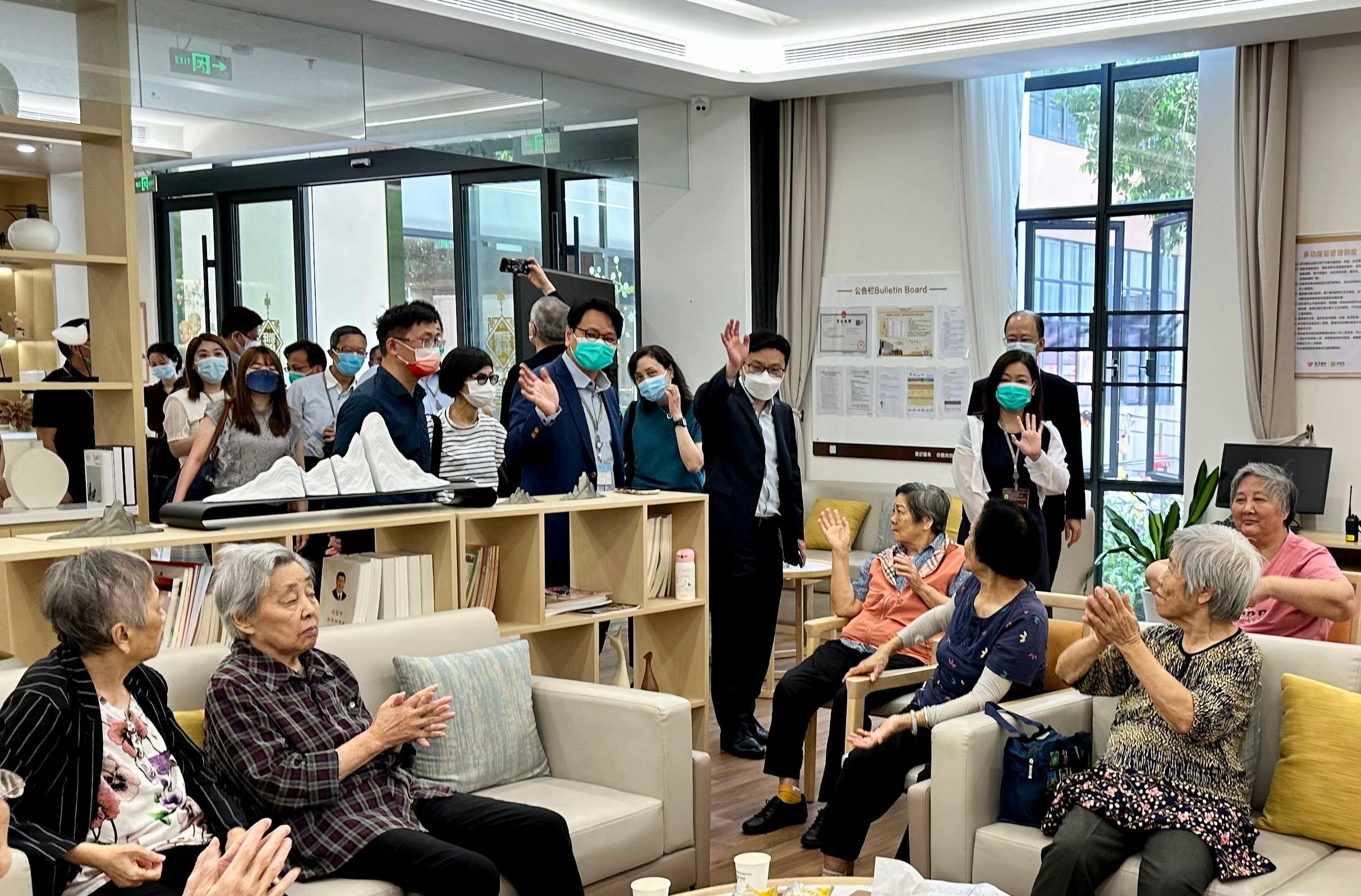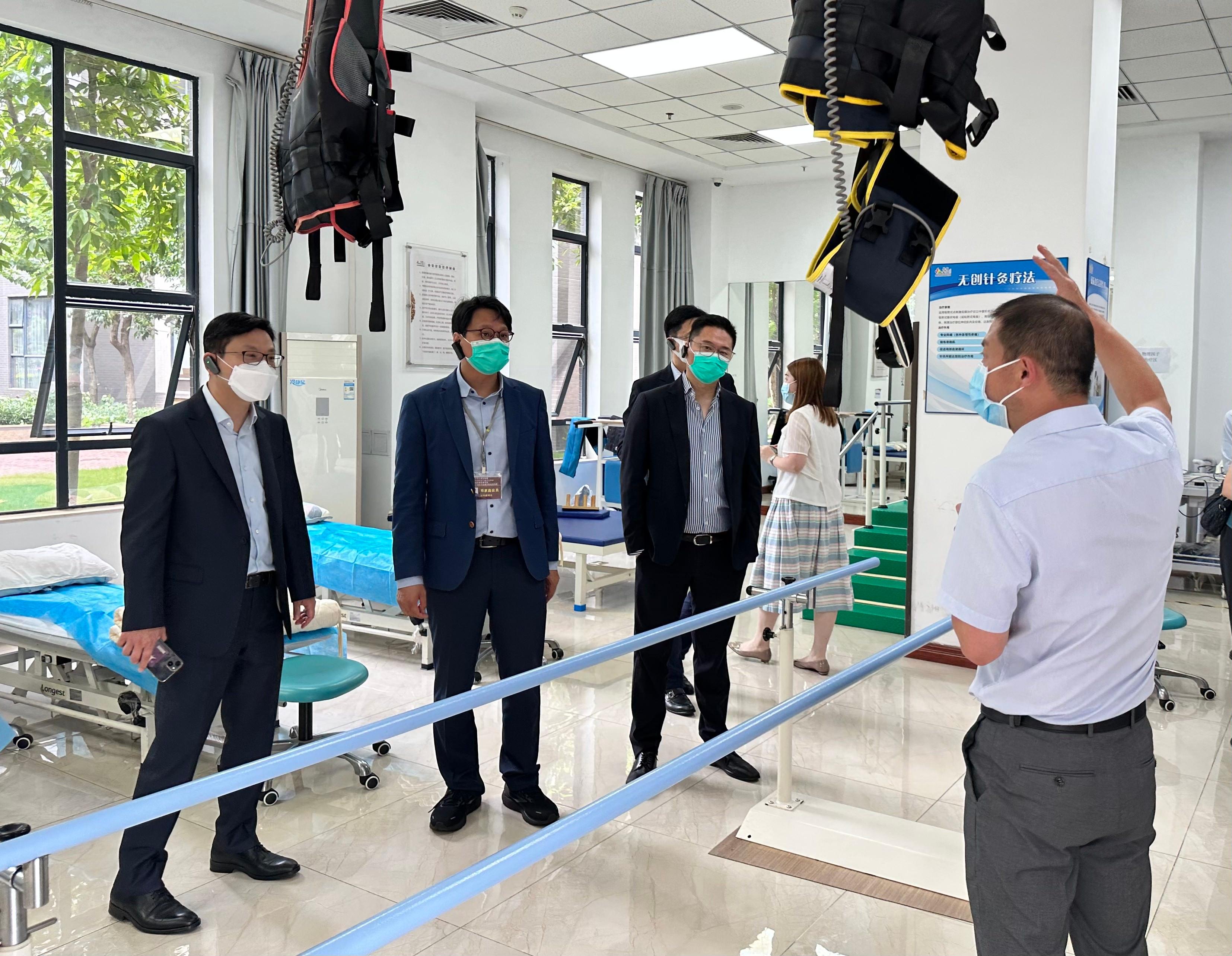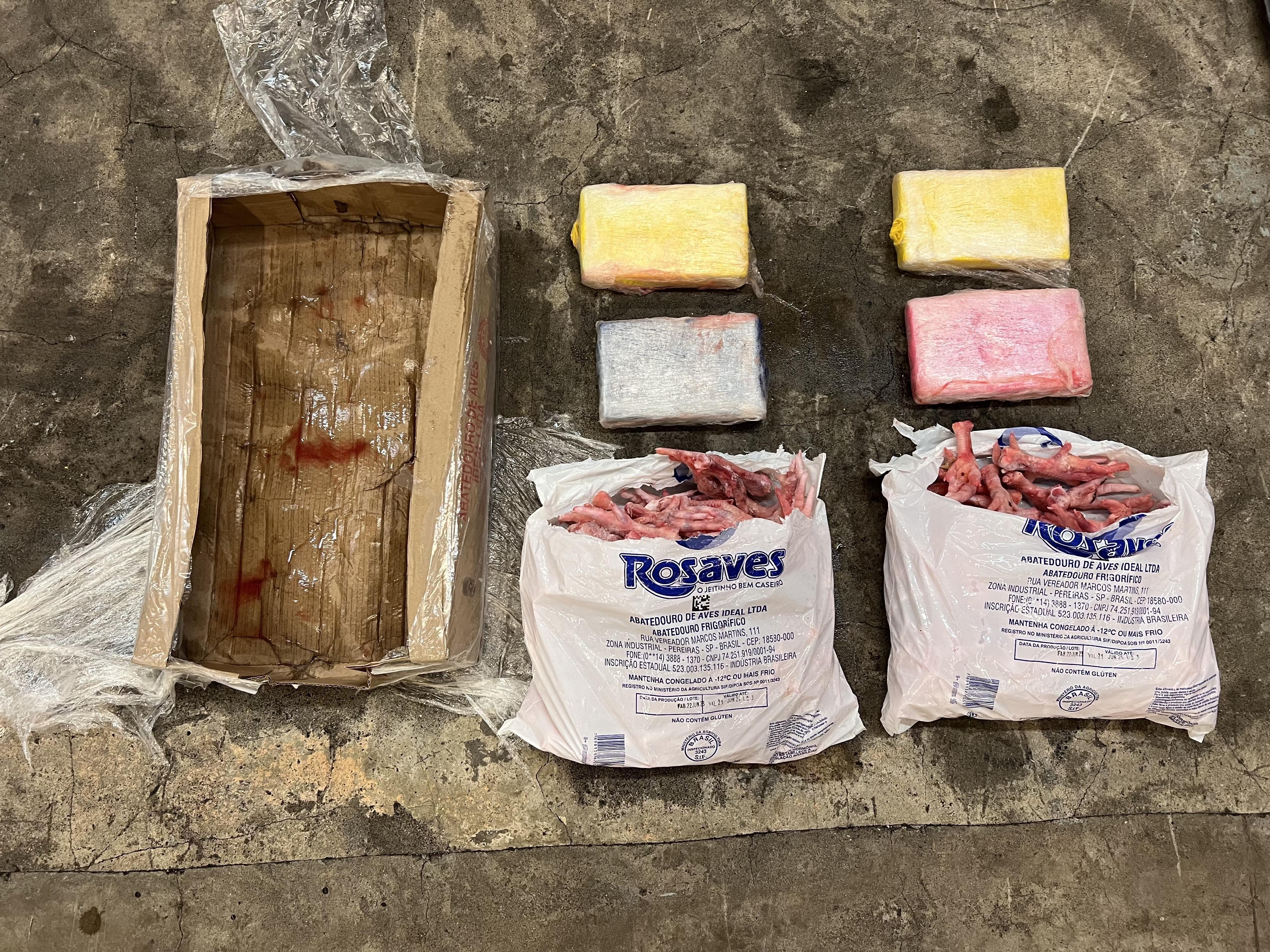SLW visits elderly service facilities in Guangzhou and Foshan (with photos)
The Secretary for Labour and Welfare, Mr Chris Sun, and the delegation of the Legislative Council Panel on Welfare Services today (August 31) continued their visit to Mainland cities in the Guangdong-Hong Kong-Macao Greater Bay Area (GBA).
Mr Sun visited an elderly apartment in Guangzhou this morning to learn about how the medical-and-elderly care integrated approach facilitates ageing in place and in the community. The delegations then departed for Foshan and toured a retirement community, including its residential care services and facilities, and took a closer look at its links with the neighbouring hospital to support elderly people’s health needs.
Mr Sun said that, to assist with Hong Kong elderly persons’ retirement on the Mainland and provide more choices of subsidised residential care service, the Social Welfare Department relaxed the eligibility criteria of operators under the Residential Care Services Scheme in Guangdong from late July so that private operators with satisfactory track records of providing subsidised residential care services for the elderly in Hong Kong can also take part. The target beneficiary was also expanded from elderly persons awaiting subsidised care and attention places to those awaiting subsidised nursing home places. The Hong Kong Special Administrative Region Government hopes that the relaxed Scheme can attract more Hong Kong operators with rich experience and of high quality to provide more residential care services in the nine Mainland cities in the GBA with a view to fostering experience sharing and professional exchanges, thereby promoting the sustainable development of elderly services in the two places.
With Super Typhoon Saola approaching Hong Kong, to gear up preparedness and response, Mr Sun cancelled the scheduled visit to Zhaoqing and advanced his return to Hong Kong this afternoon with his delegation.







